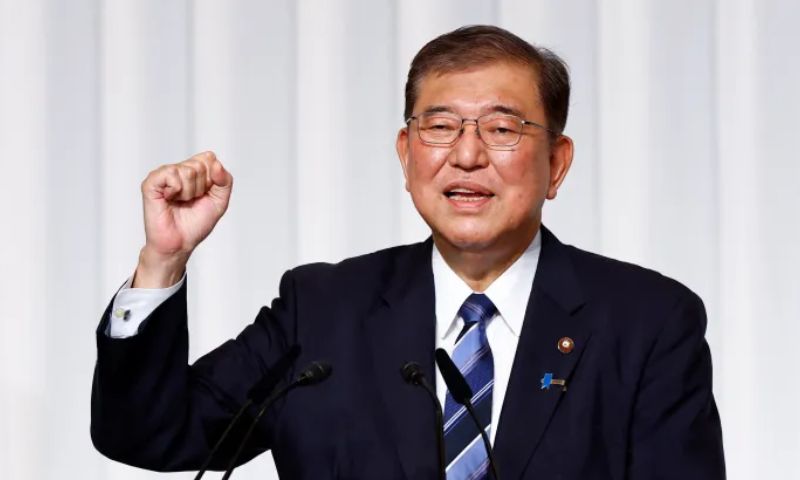TOKYO: Japan’s parliament has elected Shigeru Ishiba, the leader of the governing Liberal Democratic Party (LDP), as the country’s new prime minister. The decision was made on Tuesday, following Ishiba’s selection as party leader last Friday, succeeding Fumio Kishida, who stepped down earlier in the day to enable a smooth transition.
Kishida, who took office in 2021, resigned amid a series of scandals that had plagued his administration, creating an opportunity for new leadership. Ishiba has announced plans to call a parliamentary election for October 27, stating, “I believe it is important to have the new administration get the public’s judgment as soon as possible.” However, opposition parties have criticized him for allowing insufficient time for his policies to be scrutinized and debated before the upcoming national election.
Prior to his resignation, Kishida had indicated his intention to step down at the end of his three-year term. On Tuesday morning, he and his ministers officially left their posts during a Cabinet meeting. Chief Cabinet Secretary Yoshimasa Hayashi confirmed the leadership change, while Kishida received a farewell bouquet of red roses and was applauded by staff and former Cabinet members.
In his parting remarks, Kishida emphasized the critical challenges facing Japan, both domestically and internationally. He expressed hope that the new Cabinet would vigorously pursue essential policies, particularly in light of global tensions such as Russia’s war in Ukraine, as well as Japan’s declining birthrate and population issues. Kishida stressed the need for significant economic and political reforms.
Ishiba has already begun to shape his administration by announcing key leadership positions within his party ahead of unveiling his Cabinet. Notably, former Environment Minister Shinjiro Koizumi, who placed third in the party leadership race, will lead the party’s election task force. Ishiba is expected to appoint defense experts Takeshi Iwaya as foreign minister and Gen Nakatani as defense chief.
Most of Ishiba’s Cabinet ministers are anticipated to be independent of factions led by prominent party figures and will not include members from the powerful group associated with former Prime Minister Shinzo Abe, which has faced scrutiny due to various scandals. However, some analysts warn that Ishiba’s lack of a stable power base may lead to potential instability within his government, a concern highlighted by the liberal-leaning Asahi newspaper.
This leadership change is also seen as a form of retaliation for Ishiba, who was marginalized during much of Abe’s tenure. He has proposed the establishment of an Asian version of the NATO military alliance and is advocating for increased dialogue among regional partners regarding the use of U.S. nuclear deterrence. Additionally, he has called for a more balanced Japan-U.S. security alliance, which would include joint management of U.S. military bases in Japan and the potential establishment of Japanese Self Defense Force bases in the United States.


